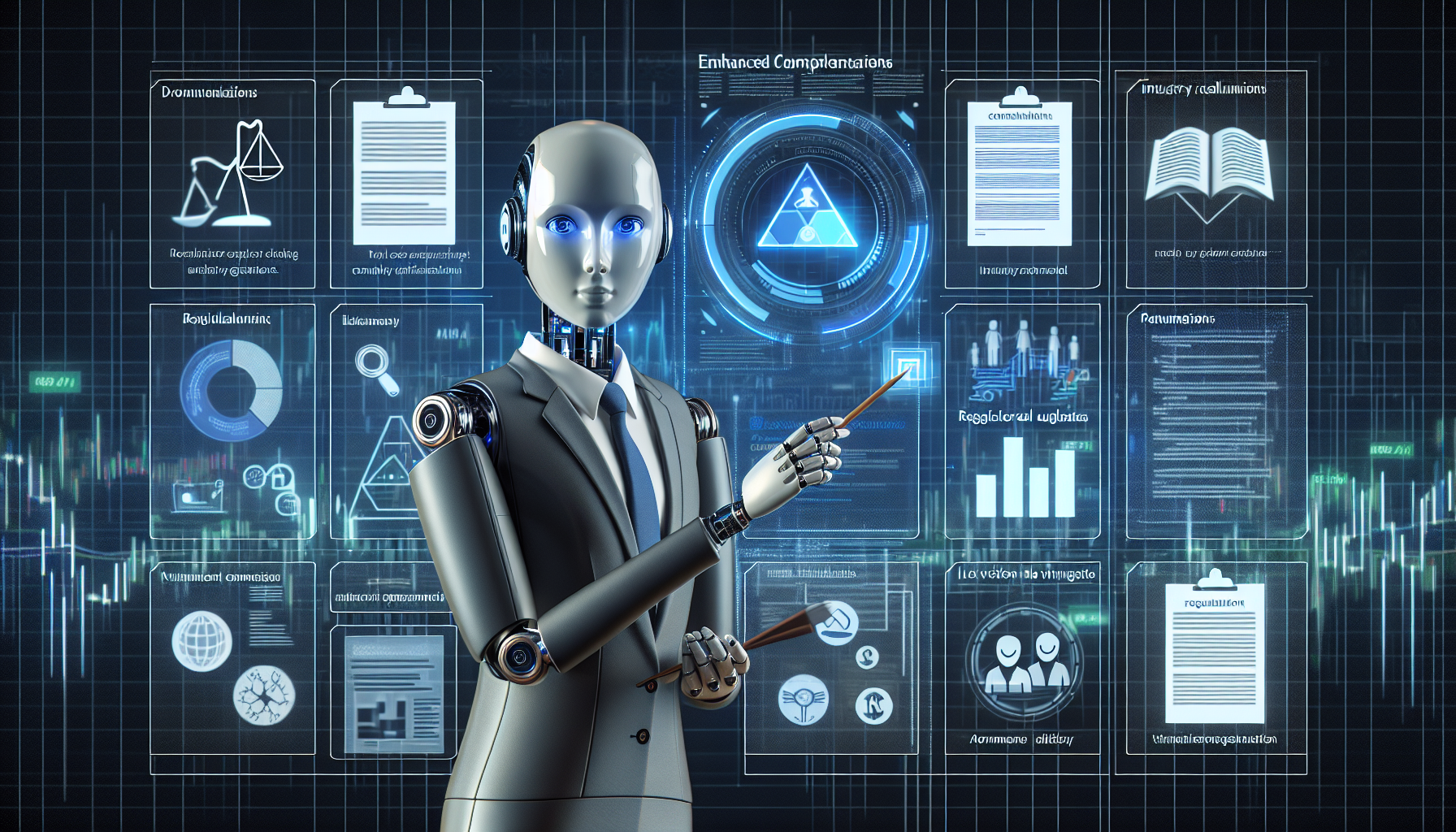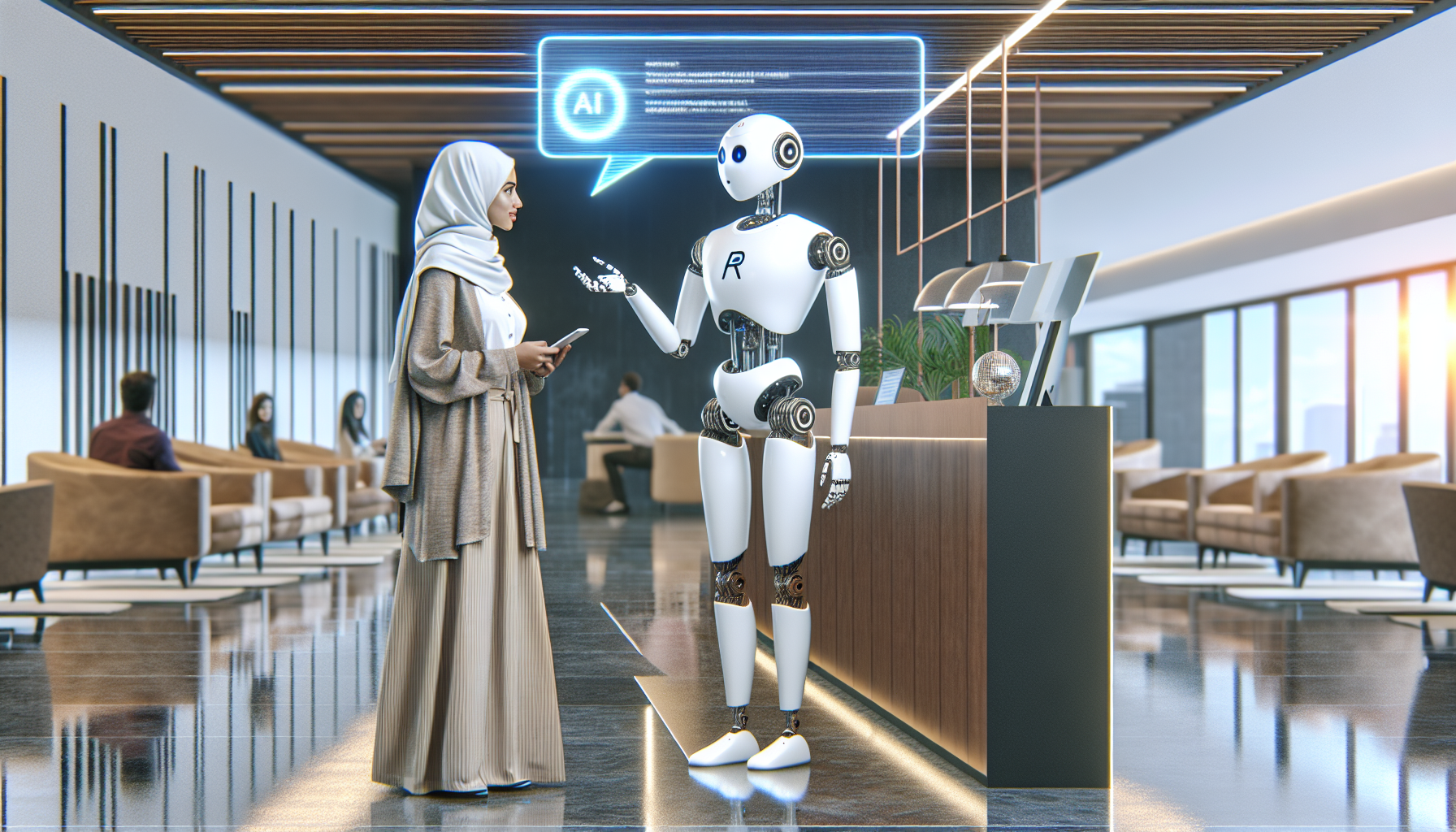
The advent of artificial intelligence has brought a significant transformation in many aspects of businesses such as sales, customer support, analytics, and more. Among these developments is the introduction of AI Receptionists, an innovative way of managing client interaction and data handling. IBM Hyper Protect Services are an excellent example of AI-based services that provide substantial benefits to businesses, including facilitating the compliance with industry regulations.

AI receptionists are machine-powered systems that simulate human receptionist activities. These computerized entities make use of artificial intelligence and machine learning algorithms to handle tasks such as answering queries, scheduling appointments, and managing customer databases. Though AI receptionists cannot entirely replace human staff, they greatly supplement them, especially during after hours, thus providing a 24/7 customer service. This ensures continuous business operations even beyond the usual working hours.
In addition to enhancing customer support, AI receptionists also play a crucial role in maintaining industry compliance. Every industry, from finance to healthcare, has specific regulations that businesses must adhere to. These laws often stipulate how businesses should handle and store customer data to ensure privacy and security. As businesses scale up, ensuring compliance manually can turn out to be a challenging task.
Here is where AI receptionists come into the picture. They are designed to handle large data volumes and have built-in functionality to validate and store data accurately and securely, as per the stipulated regulations. By incorporating IBM Hyper Protect Services in an AI receptionist system, businesses can ensure that all user data is securely stored and managed, helping them stay compliant with industry regulations. Besides, these AI-powered systems can also handle audit trails efficiently, helping businesses provide necessary evidence of compliance during audits.
In conclusion, embracing AI receptionists can be a game-changer in maintaining industry compliance. It not only ensures that businesses adhere to the laws of their respective domains but also helps them to provide top-notch customer service around the clock.
With the advent of various technological innovations, the role of artificial intelligence (AI) in the business landscape has become more profound. Among its many applications, AI's ability to ensure businesses comply with industry regulations -- through record-keeping and data management -- is a crucial factor for their success.
AI receptionists, specifically, are at the forefront of this development, offering a viable solution to the challenge of maintaining accurate and instantly retrievable records for compliance purposes. Using advanced algorithms, these receptionists are capable of recording interactions in real-time, organizing them, and storing them methodically for future use.
Crucially, the data logs created by AI receptionists are fundamentally accurate. They objectively record each interaction with no room for human error or bias. This accuracy is essential for businesses wanting to ensure they are compliant with industry regulations. Particularly in industries such as healthcare, finance, or law, which require detailed record-keeping as per the FDIC rules, HIPAA regulations, among others, this trait is invaluable.
In addition to accuracy, another advantage of AI receptionists is their ability to ensure retrievability of data. It's not just about logging data, but also making sure it can be recovered effectively when needed. Using advanced algorithms, AI receptionists can catalogue data in a way that allows for seamless retrieval. Complying with regulations often necessitates presenting specific documents or data logs upon request, sometime with short notice. With an AI receptionist, these records are always at your fingertips.
In conclusion, the advancements in AI technology have paved the way for a more regulated, compliant, and efficient business world. The ability of AI receptionists to maintain detailed, accurate, and readily retrievable records is not only a boon for routine operations but also a safeguard for businesses wanting to ensure their adherence to industry regulations.
As businesses continue their digital transformation journey, the risk of data breaches increases significantly. Modern enterprises have to juggle several balls, from maintaining customer and investor relationships to complying with industry regulations, particularly in sectors such as healthcare or financial services. In this dynamic, complex environment, Artificial Intelligence (AI) has emerged as a game-changer, with AI Receptionists playing a pivotal role in ensuring data protection and regulatory compliance.

AI Receptionists, armed with advanced security protocols, safeguard businesses' sensitive information. Unlike their human counterparts, these digital receptionists are impervious to social engineering attacks, significantly reducing the risk of data leaks. Moreover, they enforce strict security protocols, such as robust user authentication and advanced encryption methods. This ensures that any data processed or stored by them is adequately protected, helping businesses comply with Data Protection laws and regulations.
Furthermore, AI Receptionists are consistent and reliable, reducing the margin for human error, which often leads to non-compliance. They ensure that all processes adhere to the set regulations, offering a seamless yet secure customer experience. This level of data security is especially crucial for industries dealing with sensitive customer information, such as the healthcare or financial sectors, where a breach of customer data could lead to severe penalties and a loss of reputation.
Businesses can leverage AI receptionists to automate tasks like compliance monitoring and reporting, making it easier than ever to comply with industry regulations. By automatically logging all interactions, AI receptionists help businesses maintain a transparent record, thereby streamlining audits and ensuring nothing falls through the cracks.
In conclusion, adopting an AI Receptionist is more than a smart business move. It's an effective strategy to enhance data security, streamline operations, and ensure regulatory compliance. With AI taking over the front desk, businesses can focus on what they do best - innovating and serving customers, while AI handles the rest securely and reliably.
Note: The benefits mentioned above are top-level advantages. Businesses should conduct thorough research and risk assessments before implementing an AI Receptionist or any other AI-based solution, and consult with legal and data protection experts to ensure complete compliance with relevant laws and regulations.
In the current era, where regulatory compliance is a non-negotiable factor for businesses, AI receptionists pose as an efficient and precise solution. Equipped with the capability to adhere to industry-specific communication standards, these virtual assistants can ensure a business's compliance with pertinent regulations.
In specific sectors, like finance and healthcare, there are rigid regulations dictating how communications should be conducted. Organizations need to make certain disclosures to their clients, protect sensitive client data, and ensure satisfactory customer service. Within these confinements, AI receptionists play a significant role. They can be programmed to consistently abide by these guidelines, ensuring clear disclosures, diligent data protection, and courteous client interaction. As a result, chances of regulatory non-compliance due to human errors are substantially reduced.
For instance, medical practices can use AI receptionists to ensure compliance with HIPAA regulations. These assistants are designed to refrain from sharing sensitive patient data, only disclosing the necessary information during interactions, thereby upholding HIPAA regulations. Similarly, financial institutions can harness AI receptionists to comply with regulations requiring full disclosure of fees, interest rates, and other similar data.
Another crucial aspect to highlight is how AI receptionists handle customer grievance procedures. Traditionally, businesses could face regulatory penalties if not able to address consumer complaints effectively. However, AI receptionists come with robust customer grievance redressal systems, automatically recording and actioning complaints in line with predefined company processes.
In conclusion, AI receptionists are an effective tool for businesses aiming to ensure meticulous adherence to industry communication regulations. While significantly cutting chances of human error, these virtual receptionists keep the company's risk profile low by ensuring regulatory compliance throughout the company's communication channels.
In an age where technological advances are increasingly shaping corporate landscapes, AI receptionist systems are gaining a steady foothold. These advanced systems provide numerous advantages to businesses of all sizes, but one of their primary benefits lies in their capacity for customization and flexibility. This potential to be moulded according to specific needs makes AI receptionists highly efficient in assisting businesses to comply with industry-specific regulations.

In the healthcare sector, patient privacy and data confidentiality are paramount. Under laws such as HIPAA, healthcare providers must adhere to strict regulations for data handling and privacy. AI receptionists can be programmed and calibrated to automatically observe such regulations, ensuring that patient data is collected, stored, and transmitted in a compliant manner.
Similarly, in the financial sector, regulations like the Bank Secrecy Act (BSA) and Dodd-Frank Act require strict controls over customer data and transaction records. AI receptionists, with their inherent ability to securely manage vast amounts of data, can help financial institutions adhere to these regulations without requiring extensive manual interventions.
Apart from these industry-specific regulations, AI receptionists are also beneficial for businesses aiming to comply with customer service standards such as the TUCOWS and the BBB Standards for Trust. These systems can be programmed to provide consistent, accurate, and timely information, thereby meeting and often surpassing the set regulatory thresholds.
In conclusion, with their high degree of customization and flexibility, AI receptionists not only assist businesses in maintaining regulatory compliance, but also play an integral role in improving efficiency and customer service.
In today’s tech-savvy world, businesses across industries are increasingly turning to Artificial Intelligence (AI) to assist with various tasks. In particular, AI Receptionists have gained considerable attention for their potential to help businesses comply with industry regulations. Numerous case studies and industry examples demonstrate the benefits of adopting this advanced technology.
Consider the case of a leading medical institution, which deployed an AI Receptionist to streamline their patient check-in process. The AI was programmed to scan patients' identification and insurance documents, automating the early steps of the visit while also ensuring adherence to HIPAA regulations . The AI Receptionist effectively eliminated human error associated with manual data entry, enhancing the hospital's compliance capabilities.
In the banking sector, a renowned financial institution implemented an AI Receptionist to aid with onboarding new clients and verifying documents. By leveraging AI, the bank was able to digitally verify the identity of each customer using biometric data, thereby fulfilling its duty under the Banking Secrecy Act. The AI Receptionist managed to increase process efficiency and compliance while reducing opportunities for fraud.
The Hospitality Industry is another sector reaping benefits from AI Receptionists. A prestigious hotel chain used AI to manage reservation systems and handle guest registrations, ensuring their operation meets the standards of the American Hotel Lodging Association. Moreover, the AI system ensures that these procedures align with data protection laws, making the overall process more systematic and efficient.
In sum, the integration of AI Receptionists facilitates a seamless transition toward regulatory compliance across various industries, while enhancing efficiency and reducing the potential for human error. As these case studies demonstrate, the use of AI technology not only supports business operations but also aids in maintaining industry-specific legal and ethical standards.
Start your free trial for My AI Front Desk today, it takes minutes to setup!








